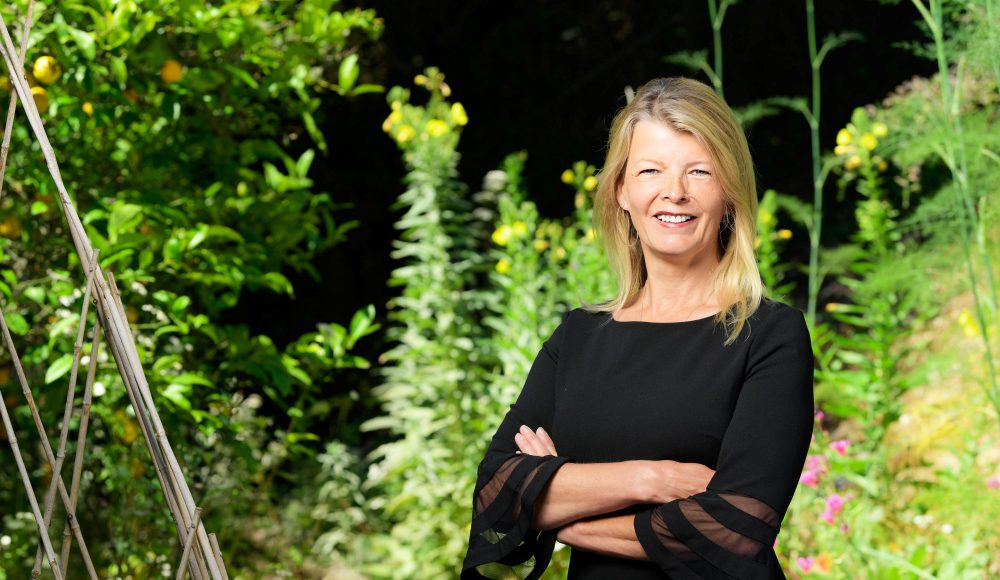by Elizabeth Borelli
Spend some time in Santa Cruz and you may hear the term “herb” used in all sorts of ways. A tasty herb could mean anything from weed to oregano depending on whom you ask.
Herbs and plants have been used since, well always, for medicinal and therapeutic purposes. While Western medicine has granted us immeasurable benefits, in the US, pharmaceuticals have eclipsed the “alternatives” to near sideshow status.
It’s tempting to think of herbalists as experts in providing botanical solutions to wellness. And that may well be true, or not. Here in the US, there are no regulations around the professional term. In short anyone can call themself an herbalist.
Yet not all nations are so laissez faire. Medical Herbalist Paula Grainger, turned Cruzan, used her degree in clinical herbal medicine from a prestigious London University to establish a successful apothecary there. But in 2011, a move to Santa Cruz also forced a change in the way she did business.
Upon her arrival, Grainger discovered the tinctures and medicinal herbs she relied on in London were hard to find here. This became the impetus for growing her own plants for use in herbal remedies. As she began integrating into the community, this English herbalist discovered that people here were interested in applying this science to their own lives.
These days Grainger sees her clients becoming more aware of herbal medicine following a western medical paradigm as opposed to the traditional Chinese medicine model. She notes the medical establishment is so much more open to recognizing the benefits of herbs and diet as the field is becoming more mainstream. Yet in realizing the many medicinal uses of plant plants as medicine, no one size fits all.
So how does one possibly know where to start? Paula Grainger has ideas.
GT: Do you see herbal medicine as preventive or curative? Or both?
PG: While in England, a Medical Herbalist is a recognized profession licensed to prescribe remedies, here the commonly used term is Clinical Herbalist. That said, a number of health problems can be significantly improved through the use of herbs. Certain herbs can also protect us from a variety of mental and physical conditions, so it’s both.
GT: What are some common reasons people seek out your services?
PG: It’s pretty diverse, from pregnancy to menopause, to chronic digestive issues, to anxiety, to building immunity.
GT: What are the best herbs for building immunity?
PG: I like echinacea, elderberry, thyme, ginger, and andrographis, but it’s also about an overall healthy nutritional state.
It’s also important to manage sleep and stress. When you’re in fight or flight response your body isn’t in a good healthy physical or mental state.
Some anti-anxiety herbs I use are: skullcap, passionflower, chamomile, lemon balm, St. John’s wort, hawthorn and rose.
GT: What are some easy ways to incorporate the benefits of herbal medicine into everyday life?
PG: Herbal tea is a delicious and effective solution. I also like herbal powder blends, adaptogens you can add into your smoothie. Cooking foods like soups, even muffins and pancakes. Some herbs I like to incorporate into recipes are ginger, turmeric and garlic. Spices are herbal medicine, they are both antimicrobial and they warm you up.
GT: What is your favorite herb and why?
PG: Lemon balm, so many reasons. It’s antiviral, with a really nice ability to lift your spirits. It helps to protect memory function. And it grows everywhere in Santa Cruz, so it’s easy to access and tastes amazing. You can pick a handful and make a tea, it’s a very calming all around lovely herb.
GT: You are offering an online course soon? Tell me more
PG: I’ve been teaching classes in my Santa Cruz home and garden for years, but I wanted to create a workshop which anyone can join. It’s so empowering for people to learn to grow and harvest herbs. Your Garden Apothecary starts on February 13th with a series of 6 classes. Learn more at www.paulagrainger.com













